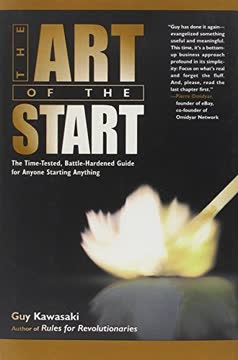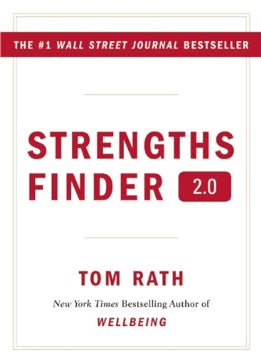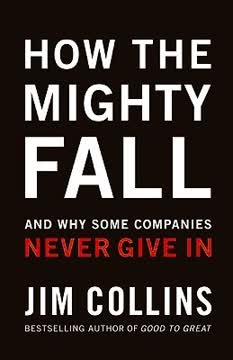Key Takeaways
1. Candor is the most underrated and crucial element in business success
Lack of candor basically blocks smart ideas, fast action, and good people contributing all the stuff they've got. It's a killer.
Candor drives success. It fosters idea-rich environments, accelerates decision-making, and cuts costs by eliminating unnecessary meetings and reports. To promote candor:
- Reward and praise it openly
- Make heroes out of those who demonstrate it
- Lead by example, even in exaggerated ways
- Create a culture where people feel safe to speak up
Lack of candor is often rooted in childhood socialization and the desire to avoid conflict. However, withholding information or sugarcoating bad news ultimately erodes trust and hinders organizational effectiveness.
2. Differentiation: Rewarding top performers and addressing underperformers is essential
Companies win when their managers make a clear and meaningful distinction between top- and bottom-performing businesses and people, when they cultivate the strong and cull the weak.
Implement differentiation effectively. The 20-70-10 system categorizes employees:
- Top 20%: Reward generously with bonuses, stock options, praise, and development opportunities
- Middle 70%: Motivate and manage with targeted training, feedback, and goal-setting
- Bottom 10%: Address through improvement plans or exit strategies
This approach isn't cruel; it's fair and effective. It ensures that top talent is retained and developed, while addressing performance issues. Differentiation also applies to businesses within a company, focusing resources on high-performing units.
3. Mission and values must be concrete and actionable, not vague platitudes
A good mission statement and a good set of values are so real they smack you in the face with their concreteness.
Craft meaningful missions and values. A strong mission statement answers: "How do we intend to win in this business?" Values should describe specific behaviors that support the mission. To develop effective missions and values:
- Involve employees at all levels in the creation process
- Use concrete, action-oriented language
- Ensure alignment between mission, values, and daily operations
- Regularly communicate and reinforce them
- Hold people accountable for living the values
Avoid generic statements that could apply to any company. Instead, focus on what makes your organization unique and how you'll achieve your goals.
4. Effective leadership requires balancing seemingly contradictory traits
Leadership is loaded with paradoxes.
Master leadership paradoxes. Great leaders must:
- Show positive energy and optimism while maintaining a healthy skepticism
- Have the courage to make tough decisions while being open to input
- Set high standards while celebrating achievements
- Be confident in their abilities while surrounding themselves with people smarter than they are
- Focus on short-term results while planning for long-term success
Key leadership behaviors include:
- Relentlessly upgrading your team
- Making the vision come alive for everyone
- Building trust through candor and transparency
- Leading by example in risk-taking and learning
Effective leaders adapt their style to different situations while maintaining authenticity and consistency in their core values.
5. Hiring decisions should prioritize energy, ability to energize others, and execution skills
Every person you hire has to have integrity, intelligence, and maturity.
Hire for the 4 E's and 1 P. Look for candidates who demonstrate:
- Energy: High personal energy and enthusiasm
- Energize: Ability to motivate and inspire others
- Edge: Courage to make tough decisions
- Execute: Skill in getting things done
- Passion: Deep commitment to work and the company's mission
When hiring, also consider:
- Cultural fit with the organization
- Potential for growth and development
- Ability to adapt to change
- Track record of success in similar roles
Avoid common hiring pitfalls like overvaluing credentials or experience at the expense of these core qualities. Remember that hiring mistakes are costly, so take the time to get it right.
6. Embrace change as an opportunity for growth and innovation
Change or die.
Make change a core competency. To successfully navigate change:
- Attach every change initiative to a clear purpose or goal
- Hire and promote "true believers" and "get-on-with-it" types
- Remove resistors, even if their performance is satisfactory
- Look for opportunities in crises and disruptions
Overcome resistance to change by:
- Communicating the business case clearly and frequently
- Providing resources and support for those affected
- Celebrating early wins and progress
- Addressing concerns and fears openly
Remember that change is constant in today's business environment. Organizations that adapt quickly and effectively gain a significant competitive advantage.
7. Work-life balance is achievable through performance-based flexibility
You can have all the work-life balance you want if you deliver.
Earn flexibility through performance. Understand that:
- Your boss's top priority is competitiveness
- Work-life accommodations are earned through excellent performance
- Real arrangements are negotiated one-on-one, not through company policies
- Publicly struggling with balance can harm your career
Effective strategies for achieving balance:
- Keep your head in the game you're currently playing
- Learn to say no to non-essential commitments
- Ensure your balance plan includes your own needs and joy
Remember that work-life balance is a personal choice with trade-offs. Be clear about your priorities and communicate them effectively to your employer.
8. Strategy is simply finding the big aha and setting a broad direction, putting the right people behind it, and then executing with an unyielding emphasis on continual improvement
Winning companies embrace risk taking and learning.
Simplify strategy development. Focus on three key steps:
- Identify your "big aha" - a smart, realistic way to gain sustainable competitive advantage
- Put the right people in place to drive the strategy forward
- Relentlessly seek out and implement best practices
To develop your strategy:
- Assess your current competitive landscape
- Analyze recent moves by competitors and your own company
- Identify potential threats and opportunities
- Determine your winning move
Avoid getting bogged down in complex analysis. Instead, set a clear direction and execute relentlessly, adapting as needed based on results and changing conditions.
9. Mergers and acquisitions require careful cultural integration and decisive action
By contrast, a good merger of equals ends up with two casualties.
Navigate M&A pitfalls. Key considerations include:
- Avoid the myth of "mergers of equals" - someone must lead
- Assess cultural fit as carefully as strategic fit
- Don't make excessive concessions during negotiations
- Integrate quickly and decisively, within 90 days if possible
- Select the best talent from both organizations
- Don't overpay, even in competitive situations
Common M&A mistakes:
- Focusing solely on cost synergies and ignoring revenue opportunities
- Underestimating the importance of clear leadership and decision-making
- Failing to communicate effectively with employees and stakeholders
- Neglecting to address cultural differences between organizations
Remember that successful M&A requires a balance of strategic vision, operational excellence, and people management skills.
10. Career advancement depends on exceeding expectations and expanding your role
To get ahead, you have to want to get ahead.
Take charge of your career. To advance:
- Consistently deliver outstanding results
- Expand your job's horizons beyond official boundaries
- Don't make your boss use political capital to champion you
- Seek out high-visibility assignments and initiatives
- Cultivate multiple mentors and learn from their experiences
- Maintain a positive, can-do attitude
Additional career advancement strategies:
- Develop a broad skill set and industry knowledge
- Build a strong professional network
- Be willing to take calculated risks and learn from failures
- Stay current with industry trends and technologies
Remember that career progression is rarely linear. Be prepared to seize unexpected opportunities and adapt to changing circumstances.
Last updated:
FAQ
What's Winning: The Ultimate Business How-To Book about?
- Focus on Winning: The book emphasizes the importance of winning in business, highlighting how it leads to growth, job creation, and opportunities.
- Practical Guidance: It offers a roadmap for success, covering leadership, hiring, people management, and crisis management.
- Real-World Examples: Jack Welch shares insights from his experiences at GE, demonstrating effective management practices.
Why should I read Winning: The Ultimate Business How-To Book?
- Expert Insights: Written by Jack Welch, a renowned business leader, it provides valuable lessons from his time as CEO of GE.
- Comprehensive Coverage: The book addresses a wide range of topics relevant to business professionals, offering actionable advice.
- Inspiration for Change: It encourages embracing change and innovation to stay competitive in today's fast-paced environment.
What are the key takeaways of Winning: The Ultimate Business How-To Book?
- Mission and Values: A clear mission and defined values are essential for guiding a company’s direction.
- Candor is Crucial: Open communication leads to better ideas and faster action, addressing the "lack of candor" issue in business.
- Differentiation Matters: Companies succeed when managers distinguish between top- and bottom-performing businesses and people.
What is the 4-E (and 1-P) framework for hiring in Winning?
- Four Es Defined: Positive Energy, Energize others, Edge (courage for tough decisions), and Execute (ability to get the job done).
- Passion is Key: The additional P stands for Passion, reflecting enthusiasm and commitment.
- Holistic Approach: Focuses on personal attributes that contribute to a positive work environment, beyond technical skills.
How does Jack Welch define candor in Winning?
- Essential for Success: Candor is a critical component of effective communication, addressing the "biggest dirty little secret" in business.
- Encourages Open Dialogue: It leads to faster decision-making and better ideas by allowing more people to contribute.
- Cultural Shift Needed: Organizations must create an environment where employees feel safe to express their thoughts.
What are the three main ways candor leads to winning, according to Winning?
- Increased Idea Generation: More people in the conversation lead to a richer pool of ideas and solutions.
- Enhanced Speed of Execution: Open discussions allow for rapid debate and decision-making.
- Cost Reduction: Eliminating unnecessary meetings and reports streamlines communication and cuts costs.
What does Jack Welch mean by differentiation in Winning?
- Resource Allocation: Differentiation involves making clear distinctions between top and bottom performers.
- Performance Management: Employees are categorized into top 20%, middle 70%, and bottom 10%, with actions based on these classifications.
- Fair and Effective: It helps organizations focus on nurturing talent and addressing underperformance.
How does Winning address the topic of crisis management?
- Assumptions During Crises: Welch outlines assumptions like the problem being worse than it appears and changes in processes.
- Proactive Communication: Transparency and open communication are crucial for managing crises effectively.
- Learning from Crises: Crises are opportunities for learning and improvement, ensuring lessons are applied to prevent future issues.
How does Jack Welch suggest handling a bad boss in Winning?
- Self-Assessment: Assess your own performance and behavior before addressing the issue with your boss.
- Open Communication: Have a candid conversation to uncover the root of the issue and clarify expectations.
- Focus on Results: Deliver strong results despite challenges to maintain your reputation and position.
- Consider Your Options: If the situation doesn't improve, evaluate whether the job is worth the stress.
What is the importance of Six Sigma in Winning?
- Quality Improvement: Six Sigma enhances operational efficiency and reduces costs by minimizing defects.
- Customer Satisfaction: It improves customer experiences, leading to increased loyalty and competitive advantage.
- Leadership Development: The rigorous training fosters critical thinking and problem-solving skills among employees.
How does Winning address work-life balance?
- Personal Responsibility: Work-life balance is the individual's responsibility, requiring conscious choices about time allocation.
- Performance-Based Flexibility: Flexibility is often earned through strong performance, leading to accommodations for balance needs.
- Trade-Offs: Achieving balance requires assessing what you're willing to give up to achieve your desired balance.
What are the common mistakes companies make when launching new ventures, according to Winning?
- Insufficient Resources: Companies often fail to allocate adequate resources, hindering success from the start.
- Lack of Support: New ventures need strong support and visibility within the organization to gain traction.
- Limited Autonomy: Granting autonomy is crucial; overly controlling management can stifle innovation and creativity.
Review Summary
Winning receives mostly positive reviews for its practical business advice from Jack Welch's experience leading GE. Readers appreciate Welch's straightforward style and insights on leadership, strategy, hiring, and managing people. Many find the book applicable beyond just business. Some criticize Welch's aggressive approach, but most reviewers recommend it as a valuable resource for aspiring leaders and managers. The book is praised for its real-world examples and no-nonsense guidance on achieving success in business and career development.
Similar Books









Download PDF
Download EPUB
.epub digital book format is ideal for reading ebooks on phones, tablets, and e-readers.





